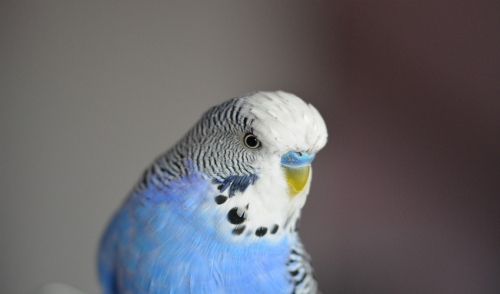
Everything You Need to Know About Your New Parakeet
Parakeets are popular pets, but how much do you know about these beautiful birds? The more you know about your new parakeet, the better prepared you will be to help it have a long, happy, healthy life.
What You Need To Know About Your Parakeet
Parakeets can be very rewarding pets to own, and they make great companions. It is important to understand how to meet their needs, however, in order to give them a comfortable and healthy life and create a strong owner-parakeet bond you can both enjoy.
- Personality
Parakeets are social birds that require significant companionship. If you are away from home a lot, either at work or traveling, a parakeet may not be the best pet, or you may want to adopt more than one bird so they can keep each other company. Position their cage where they can see and hear you well, and be sure to talk to your bird. They are curious, and will respond well to your interactions.
- Lifespan
Getting a parakeet can be a lengthy commitment, as these birds can live for 10-25 years or longer, depending on their exact species, overall health, and living conditions. Parakeets are not always the best pets for children, since a child may grow and go off to college where they cannot take their parakeet, and elderly parakeet owners may want to be sure their birds can be taken care of if they can no longer care for the bird themselves.
- Intelligence
Parakeets are smart birds that need sufficient mental stimulation to avoid boredom and stress. Place a variety of perches and toys in their cage, particularly bells, mirrors, and items of different colors and shapes that will intrigue the birds. Parakeets can learn tricks, and training sessions can help strengthen their bond with their human flock.
- Space
Parakeets need adequate space for exercising, roosting, and so they don't feel crowded or contained. The cage should be as large as your budget can afford, and the bars should provide a suitable climbing surface that the birds cannot become wedged in or escape through. The cage needs to be placed near human activity so the birds are connected to you, but do not place a cage in the kitchen where cooking fumes can be toxic to birds.
- Exercise
Even cage birds need adequate exercise, and parakeets will actively climb on their cage and perches. Climbing and chewing activities will keep their bills and talons in top condition, and they should have plenty of opportunities to run or walk around outside their cage. If their wings are not trimmed, they will also need time to exercise their flight muscles safely and securely.
- Diet
Parakeets need a varied diet to provide good, balanced nutrition. Pellets are available in pet stores and have good basic nutrition, but they should be supplemented with seed, fruit, and vegetables for even better nutrition and to keep the bird interested in its food. Fresh water should also always be available to your parakeet.
- Vocalizations
Pet birds can be noisy, and parakeets will sing, chirp, and even screech. They are talented mimics and some species can even learn to speak certain words or phrases. They may sing along with music or respond to your speech. If you prefer a quiet pet, a parakeet may not be the best choice.
- Temperature
Parakeets are comfortable in most household temperatures, but if you like your home very warm or very cold, the birds may suffer. Avoid putting their cage in areas where they are subject to either direct sunlight or consistent drafts, such as right next to a window or near a vent. Provide a roosting box for shade and shelter in the cage, and your bird will be more comfortable.
- Health
You will need to provide for your parakeet's health needs, and while these birds are generally healthy, it is important to know the signs of illness or distress so you can be aware if there are problems. Watch for appetite changes, check their feces for discoloration or consistency problems, and note any energy or behavioral changes that could indicate problems. Be sure you know where the nearest avian veterinarian can be reached for emergencies, as well as regular health checkups.
A parakeet can be a fun pet, if you're ready for it. Once you know the basics about these birds, you'll be ready to have a flock of your own!

